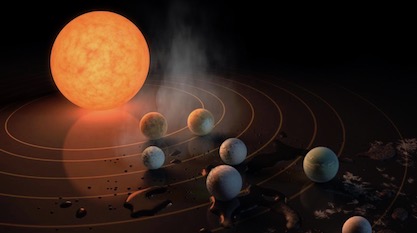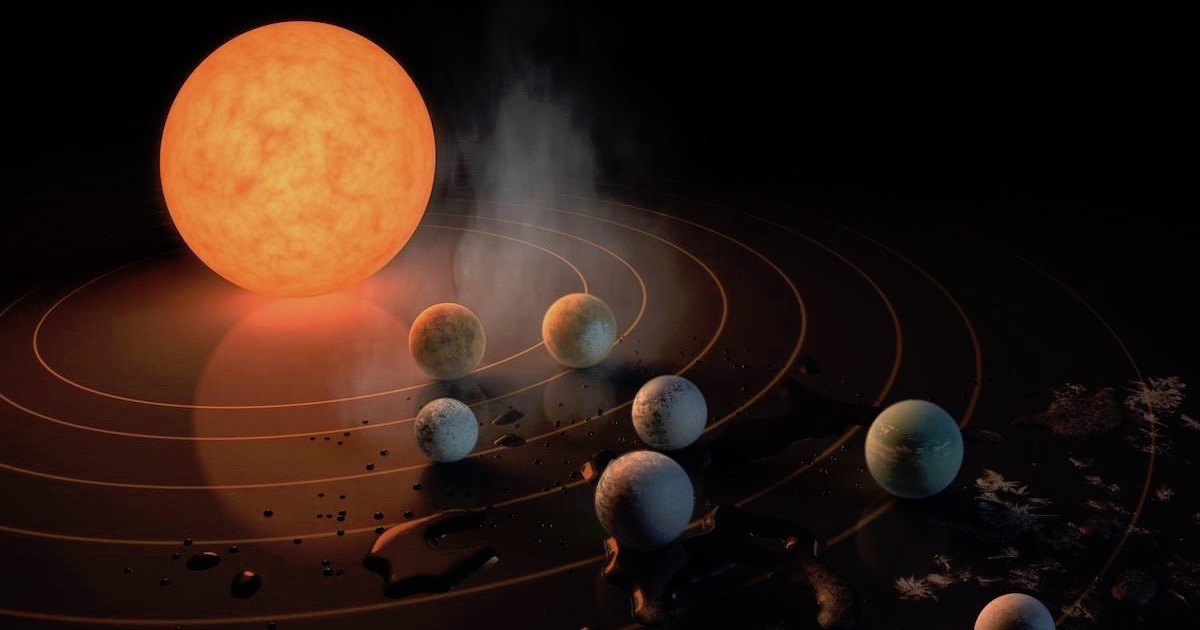 Physics, Earth & Space
Physics, Earth & Space
The “Surprisingly Consistent” Answer to the Question: Are We Alone in the Universe?


You can understand a lot about modern science if you understand SETI research. Not that SETI is all that sophisticated and certainly not because it’s been successful (it has not), but because it tells you a lot about the materialist metaphysical bias in modern science.
“The Big Question”
From The Conversation:
Are we alone in the Universe? The expert opinion on that, it turns out, is surprisingly consistent.
“Is there other life in the Universe? I would say: probably,” Daniel Zucker, Associate Professor of astronomy at Macquarie University, tells astrophysics student and The Conversation’s editorial intern Antonio Tarquinio on today’s podcast episode.
“I think that we will discover life outside of Earth in my lifetime. If not that, then in your lifetime,” says his fellow Macquarie University colleague, Professor Orsola De Marco.
And Lee Spitler, a Senior Lecturer and astronomy researcher at the same institution, was similarly optimistic: “I think there’s a high likelihood that we are not alone in the Universe.”
The big question, however, is what that life might look like.
We’re also hearing from Danny C Price, project scientist for the Breakthrough Listen project scanning the southern skies for unusual patterns, on what the search for alien intelligence looks like in real life — and what it’s yielded so far.
There is a near consensus among experts (astronomers, astrobiologists, astrophysicists, etc.) that we are not alone. To point out at an astrobiology conference that there’s not a shred of evidence for astrobiology would be like striking up a conversation about sex trafficking at Jeffrey Epstein’s wake. You had best make other arrangements for the rest of the day. The existence of extraterrestrial life is the lodestar of 21st-century astronomy — witness the odd fact that astrobiology is a thing in science rather than in science fiction. Not a day goes by without a scientific expert proclaiming that we are on the verge of meeting ET — whether a microbe in an extraterrestrial ocean or a bug in a Martian desert or a galactic engineer in a Dyson sphere.
The Scientific Method
So what’s the scientific basis for this astrobiological “consensus”? The scientific method is, of course, a posteriori reasoning: we collect evidence, propose a framework (theory) by which the evidence can be evaluated, and arrive at a conclusion — in the case of SETI, the conclusion is the near certainty of extraterrestrial life.
The evidence on which the near-consensus that we are not alone is based is… zero. Nada. Non-existent. There’s not a shred of evidence for life anywhere but Earth. What little passes for evidence — the discovery of extra-solar Earth-like planets and of proteins — is meaningless unless we know that answer to the question: How did life arise on Earth, and how can life arise elsewhere? We know nothing about the source of life on Earth, and fanciful theories don’t count. A posteriori reasoning (the scientific method) depends on evidence first and foremost. And we have no evidence for extraterrestrial life and no idea how life arose in the only place we know — Earth.
Why So Sure?
So why are “experts” so sure that extraterrestrial life exists? The evidence is zilch, so to reach the conclusion that ET is almost certainly out there, experts must have an extraordinarily compelling theoretical framework. And they do — materialism. It is an unexamined act of faith among science elites today that materialism explains all of the natural world. So if materialist abiogenesis worked on Earth, it’s undeniable that it would work on other worlds with matter (oxygen, nitrogen, and carbon) and starlight like our own.
The firm belief in extraterrestrial life — a belief nearly universal in the scientific community — is an act of faith. It is an act of faith in materialism. It is based on no evidence whatsoever. If anything, the evidence thus far is that extraterrestrial life does not exist — after all, we’ve looked and haven’t found any. Perhaps it’s waiting around the corner, but there’s no evidence it is, and there’s no scientific reason to think that it is.
Just Around the Corner
So when you hear scientific experts tell you that “nothing in biology makes sense except in light of evolution” or “The materialist hypothesis — that the brain causes consciousness — has made a number of predictions, and every single prediction has been validated,” keep in mind that this is the same crowd who are sure — damned sure — that ET is just around the corner, despite not a shred of evidence or science to support the assertion.
Astrobiology, like Darwinism and materialist neuroscience, are acts of faith. So much of modern science is just materialism and atheism, posing as science.
Image: TRAPPIST-1 planetary system (artist’s imagining), a favorite for speculations about astrobiology, by NASA/JPL-Caltech.
